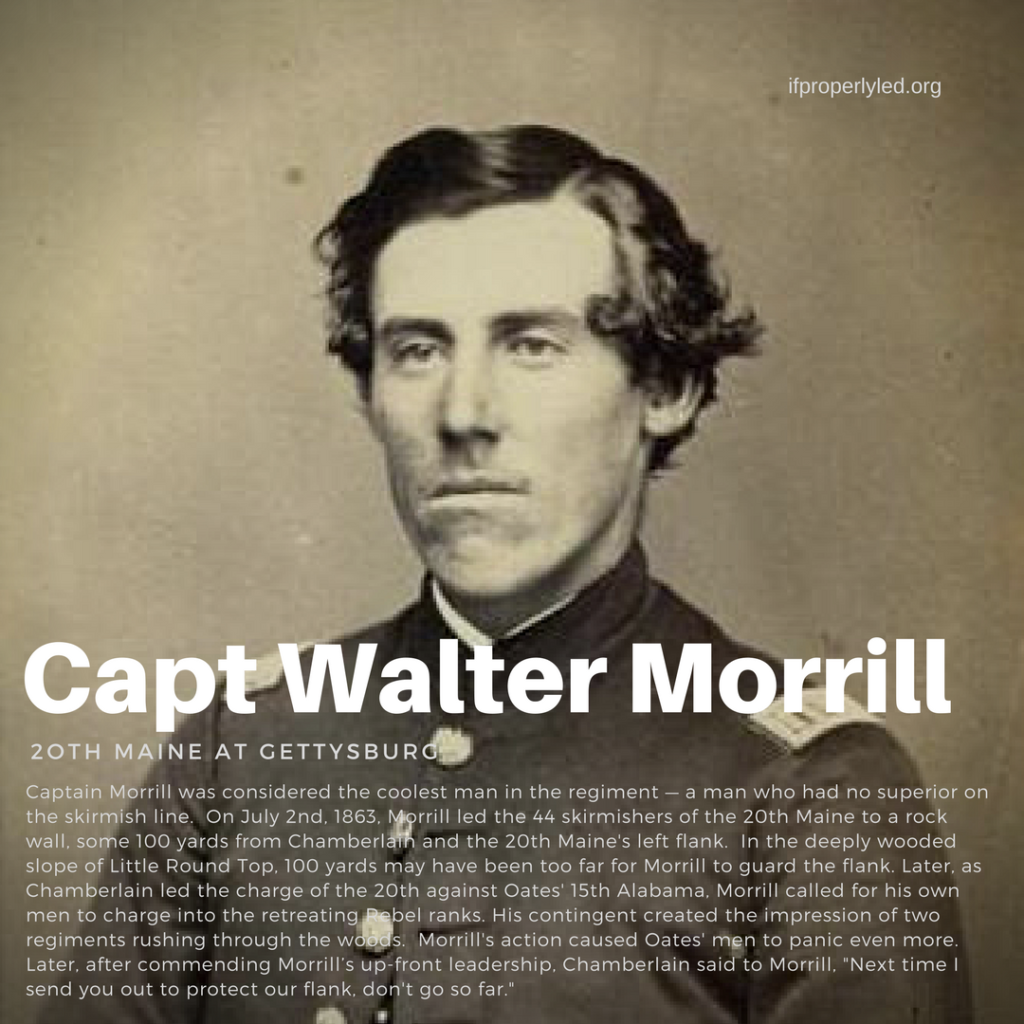
Learning More about Gettysburg
Captain Morrill was considered the coolest man in the regiment — a man who had no superior on the skirmish line.
On July 2nd, 1863, Morrill led the 44 skirmishers of the 20th Maine to a rock wall, some 100 yards from Chamberlain and the 20th Maine’s left flank.
In the deeply wooded slope of Little Round Top, 100 yards was too far for Morrill and his men to adequately guard the flank. Fortunately, Chamberlain saw through the smoke and trees the 15th Alabama moving around his left flank. Later, as Chamberlain led the charge of the 20th against William Oates’ 15th Alabama, Morrill recognized the opportunity for his own men to charge into the retreating Rebel ranks. His contingent created the impression of another regiment attacking the rear of the Confederate troops.
Morrill’s action caused the 15th Alabama to panic even more.
Later, after commending Morrill’s up-front leadership, Chamberlain gently admonished Morrill, “Next time I send you out to protect our flank, don’t go so far.“
Perhaps remembering that he had gone too far from Chamberlain’s left flank at the Battle of Gettysburg, Morrill would later volunteer for a particularly dangerous assault. At Rappahannock Station in Virginia, on November 7, 1863, the 20th Maine was again holding an extreme flank position. Morrill saw that his former 6th Maine comrades were making an assault against a heavily fortified position. Acting without orders, Morrill led four dozen of his men into the attack to help the 6th Maine. The assault succeeded.
For his initiative, Morrill was later awarded the Medal of Honor.
His Citation reads: “Learning that an assault was to be made upon the enemy’s works by other troops, this officer voluntarily joined the storming party with about 50 men of his regiment, and by his dash and gallantry rendered effective service in the field.”
Were some of those men part of the 44 skirmishers who were like Morrill “too far” to help at Gettysburg?
Could it be that gentle rebukes go a long way with those we lead?